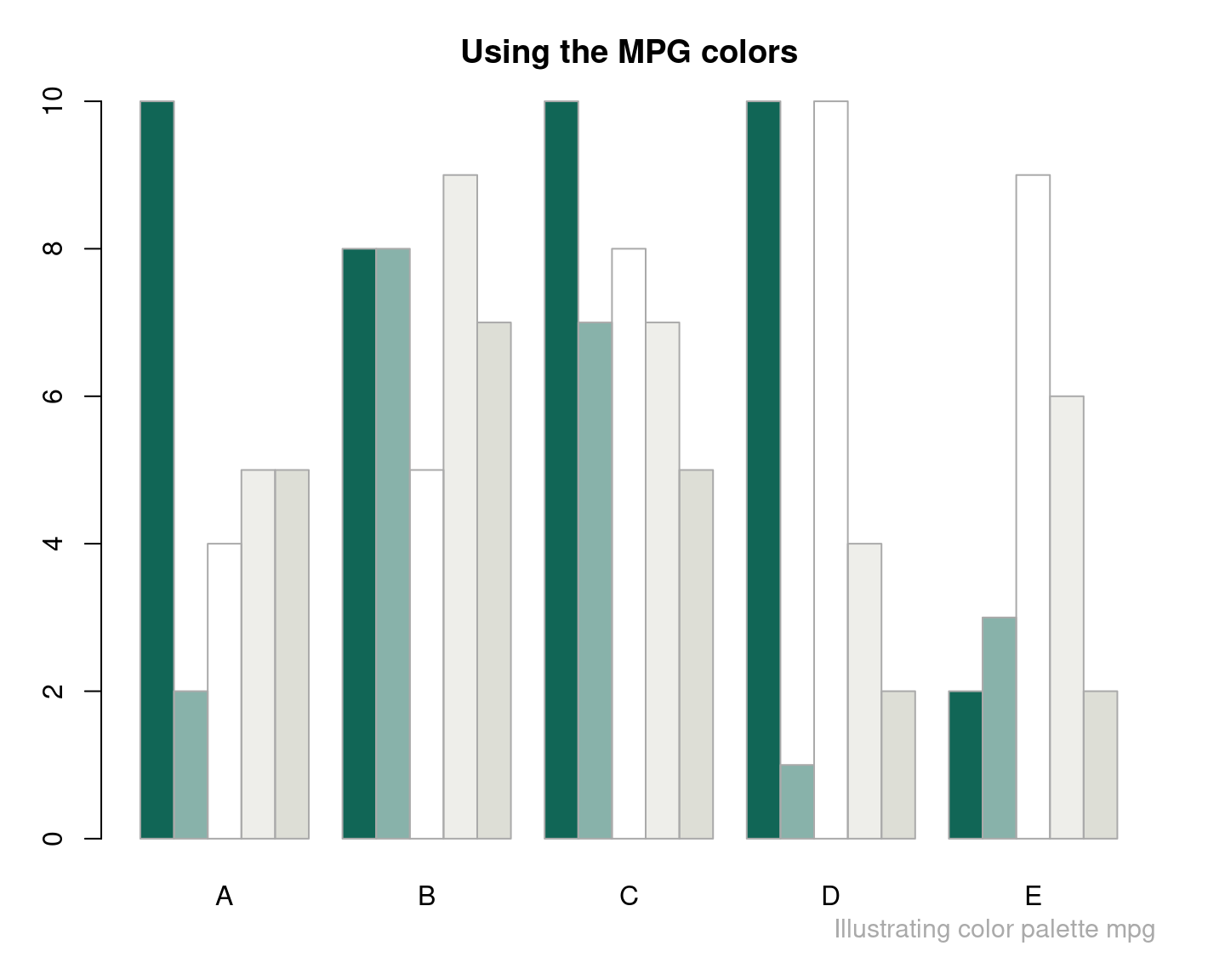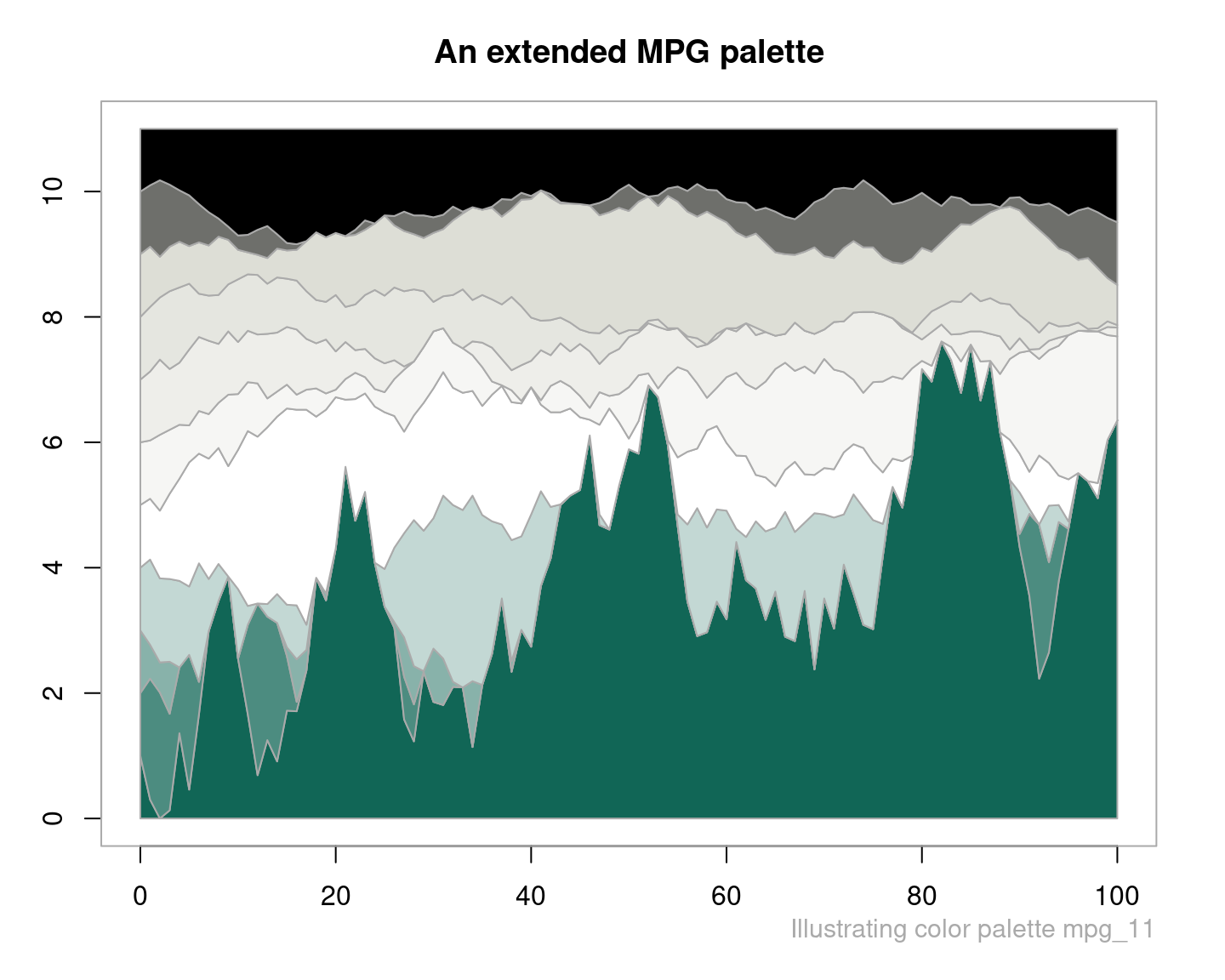mpg provides the default color palette
of the Max Planck Society, Germany.
Source
Color definitions are based on https://pp.one/.
Details
The two primary colors are at the extreme positions of mpg:
MPG green(atmpg[1]): Defined asPantone 328,CMYK 100/0/57/30, orRGB 17/102/86.MPG grey(atmpg[5]): Defined asPantone 427,CMYK 0/0/6/15, orRGB 221/222/214.
At mpg[3], the color "white" was added to enable symmetrical color gradients.
See examples and the ac and usecol functions
for creating color gradients.
Examples
mpg
#> MPG green MPG green 50% white MPG grey 50% MPG grey
#> "#116656" "#88B2AA" "white" "#EEEEEA" "#DDDED6"
unikn::seecol(mpg, main = "Colors of the Max Planck Society") # view color palette
 unikn::demopal(mpg, type = 1, main = "Using the MPG colors")
unikn::demopal(mpg, type = 1, main = "Using the MPG colors")
 # Extended version:
mpg_11 <- unikn::usecol(c(mpg, "black"), n = 11)
unikn::demopal(mpg_11, type = 4, seed = 1, main = "An extended MPG palette")
# Extended version:
mpg_11 <- unikn::usecol(c(mpg, "black"), n = 11)
unikn::demopal(mpg_11, type = 4, seed = 1, main = "An extended MPG palette")

